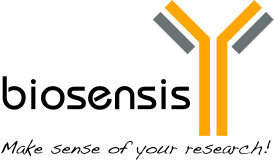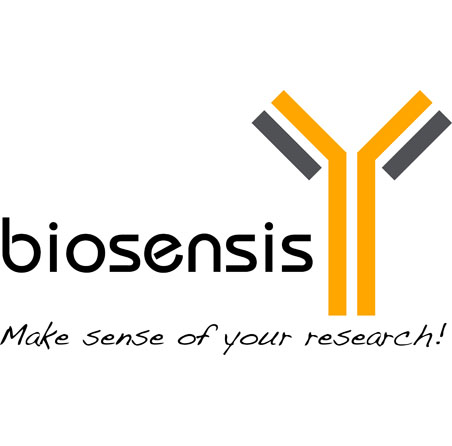Brain-derived neurotrophic factor (BDNF), Sheep Polyclonal Antibody
As low as
US$317.00
Only %1 left
Catalog Number
S-016
- Product Name Brain-derived neurotrophic factor (BDNF), Sheep Polyclonal Antibody
- Product Description Sheep anti-Brain-derived neurotrophic factor (BDNF) Polyclonal Antibody (Unconjugated), suitable for WB, IHC-Frozen, ELISA, Neutralize.
- Alternative Names Brain-derived neurotrophic factor; Abrineurin; proBDNF;
- Application(s) ELISA, IHC-Frozen, Neutralize, WB
- Antibody Host Sheep
- Antibody Type Polyclonal
- Specificity A cross reactivity of less than 1% against mouse NGF, recombinant human NT3 or NT4/5 has been shown by one site ELISA. This antiserum recognises BDNF from rat, mouse and human.
- Species Reactivity Human, Mouse, Rat
- Immunogen Description Recombinant human BDNF
- Conjugate Unconjugated
- Purity Description Whole serum
- Regulatory Status For research use only.
Product Info
- Product Description Sheep anti-Brain-derived neurotrophic factor (BDNF) Polyclonal Antibody (Unconjugated), suitable for WB, IHC-Frozen, ELISA, Neutralize.
- Application(s) ELISA, IHC-Frozen, Neutralize, WB
- Application Details IHC, Inhibition of biological activity in vitro/in vivo. Recommended to be used at a dilution of 1:200-2000 for immunohistochemistry on Zamboni's fixed frozen tissue; not recommended for formalin fixed paraffin embedded tissues. 1:10 to 1:50 for inhibition of biological activity in vitro. Use neat for in vivo studies at 5-10 µL/g body weight. Whole serum format will caused immune responses, purified format is preferred for most in vivo work. Not recommended for western blots. Biosensis recommends optimal dilutions/concentrations should be determined by the end user.
- Target Brain-derived neurotrophic factor (BDNF)
- Specificity A cross reactivity of less than 1% against mouse NGF, recombinant human NT3 or NT4/5 has been shown by one site ELISA. This antiserum recognises BDNF from rat, mouse and human.
- Target Host Species Human
- Species Reactivity Human, Mouse, Rat
- Antibody Host Sheep
- Antibody Type Polyclonal
- Antibody Isotype Mixed
- Conjugate Unconjugated
- Immunogen Description Recombinant human BDNF
- Purity Description Whole serum
- Format Lyophilized
- Reconstitution Instructions Spin vial briefly before opening. Reconstitute in 100 µL sterile-filtered, ultrapure water. Centrifuge to remove any insoluble material.
- Storage Instructions After reconstitution keep aliquots at -20°C for a higher stability, and at 2-8°C with an appropriate antibacterial agent. Glycerol (1:1) may be added for an additional stability. Avoid repetitive freeze/thaw cycles.
- Batch Number Please see item label.
- Expiration Date 12 months after date of receipt (unopened vial).
- Alternative Names Brain-derived neurotrophic factor; Abrineurin; proBDNF;
- Uniprot Number P23560
- Uniprot Number/Name P23560 (BDNF_HUMAN)
- Scientific Background BDNF belongs to the neurotrophin family and promotes the survival of neuronal populations that are all located either in the central nervous system or directly connected to it. It is a major regulator of synaptic transmission and plasticity at adult synapses in many regions of the CNS. The versatility of BDNF is emphasized by its contribution to a range of adaptive neuronal responses including long-term potentiation (LTP), long-term depression (LTD), certain forms of short-term synaptic plasticity, as well as homeostatic regulation of intrinsic neuronal excitability. The alterations in BDNF expression induced by various kinds of brain insult including stress, ischemia, seizure activity and hypoglycemia, may contribute to some pathologies such as depression, epilepsy, Alzheimer's, and Parkinson's disease. Microglia release BDNF that may contribute to neuroinflammation and neuropathic pain. SUBUNIT: Monomers and homodimers. Binds to NTRK2/TRKB. SUBCELLULAR LOCATION: Secreted protein. POst translation modification: Converted into mature BDNF by plasmin (PLG). SIMILARITY: Belongs to the NGF-beta family.
- Shipping Temperature 25°C (ambient)
- UNSPSC CODE 41116161
- Regulatory Status For research use only.
Specifications
-
General References
A Acheson et al (1995) Nat. 74: 450-3
Q Yan et al (1994) J. Neurosci. 14(9): 5281-91
XF Zhou et al (1996) Neurosci. 74: 945-53
XF Zhou, et al (1998) Exp. Neurol. 149: 237-42
B Mellstrom et al (2004) Crit Rev Neurobiol 16, 43-9
I Tapia-Arancibia et al (2004) Front Neuroendocrinol 25, 77-107
S Pezet, et al (2002) Brain Res Brain Res Rev 40, 240-9
JA Coull et al (2005) Nature. Dec 15;438(7070):1017-21.
C Gomes et al (2013) J Neuroinflammation. Jan 30;10:16.

 1800 605-5127
1800 605-5127 +61 (0)8 8352 7711
+61 (0)8 8352 7711
